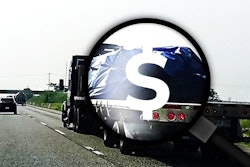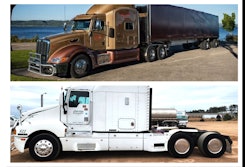During President Donald Trump’s first term, meaningful driver pay reform seemed to be a possibility with a willing ear in the White House, yet it didn’t happen despite some moves around overtime and independent contractor classification. After Trump lost to eventual President Joe Biden, bipartisan legislative efforts to roll back the motor carrier exemption to paying drivers overtime were introduced in Congress multiple times, to no avail. Such efforts have been back in the headlines this year, and back under Congressional consideration.
As the President took office early this year, too, new hope appeared to rise with the sun. He signed an executive order to boost enforcement of English proficiency. While it may not seem fair to the many truck drivers who struggle with those requirements and could potentially lose their jobs, it is the right move for safer roads -- and likely reduced capacity, which I hope helps rates.
Yet with the House of Representatives’ passing of the “big, beautiful bill” we’ve heard so much about, there’s a lot that’s not so beautiful for truckers. It will certainly be modified now that the Senate is considering its own version of the legislation, yet what the House version does is effectively solidify the tax policies from the President’s first term, which notably failed to provide deserved tax relief to company drivers.

Under terms of the 2017 Tax Cuts and Jobs Act, company drivers could no longer deduct per-diem expenses from their taxes. That loss was offset by a marked increase in the standard deduction, but for employee drivers who spend most of their nights OTR in any given year, the change was in effect a tax hike.
The new bill does nothing to change that dynamic. In my view, it is one of most unfair provisions ever imposed on truckers who sacrifice time with their families to serve their country and perform a challenging job, driving the lower-middle-class-paid truck driver close to an even lower economic tier.
[Related: House's 'Big Beautiful Bill' could result in higher health insurance premiums]
As the Owner-Operator Independent Drivers Association has pointed out recently, the bill would impose what OOIDA called an unexpected “tax” on all freight entities, particularly brokers and freight forwarders but also some motor carriers, who will be forced to pay a $100 fee to utilize a redundant website to check a motor carrier’s safety record/rating. This is unnecessary since the U.S. Department of Transportation publicly posts the necessary information and makes it available free to the public today. For an industry that is already heavily taxed, this is just another hit to the finances of small trucking businesses.
And while eliminating taxes on overtime pay broadly may benefit those who currently receive it, it doesn't extend to truckers, as Fair Labor Standards Act reform to require overtime pay for employee drivers has yet to be established for them. Since the exemption was never lifted for truckers, according to OOIDA they won’t benefit from tax deductions for overtime compensation even if a company currently pays their drivers overtime -- because they are not obligated to do so. This situation makes a career in trucking even less attractive compared to other blue-collar industries. That’s particularly bad when the business is already struggling to effectively engage a new generation of drivers.
The bill offers several benefits for truckers, extending the savings delivered to owner-operators and other small trucking companies offered by the 2017 tax legislation, for instance. It helps safeguard the legacy of family-owned businesses, most trucking companies in the U.S. After decades of hard work, sweat and tears, small companies that have been built from the ground up -- beginning with one truck and one driver -- could be better protected when it’s time to pass them down to the next generation through a permanent extension of the estate tax exemption.
By extending current income tax rates, alternative minimum tax exemptions, and the standard deduction, along with increasing the business income deduction for some qualifying pass-through entities to 23% from 20%, some trucking companies structured as such stand to significantly benefit -- including some owner-operators -- potentially offsetting increased costs elsewhere. The bill encourages investment in new equipment, enhancing safety and environmental standards, with greater bonus depreciation. The bill aims, too, to reduce the EPA's impact, which had placed excessive burdens on manufacturers and raised equipment costs.
[Related: Transportation budget moves in House might help small fleets in 'Conditional' safety rating limbo]
The legislation would finally tax electric and hybrid vehicles through a registration fee that seeks to mirror what conventional cars pay in fuel taxes to fund roads -- while this won’t completely level the playing field for highway funding, given the huge amount trucking contributes to the funding, it makes sense and will help better fund the roads we all drive on. Another advantage for the trucking industry offered by the bill is that it simplifies the extensive permitting regulations related to environmental review processes, expediting energy projects.
There’s a whole lot more in it that could hold benefit for truckers -- simplified permitting/environmental review for energy projects, Pell Grant opportunities for postsecondary training, and the list goes on. Yet it’s no surprise to me that OOIDA opposes it in the House-passed form. For the average owner-operator trying to build a business, there are those tax benefits, among others. Yet for the average company driver, this bill is not as favorable. Although it may help the incoming generation afford training, it makes career opportunities less attractive for a segment already facing difficulties.
[Related: Trucker overtime pay legislation revived | Missouri to tackle predatory towing]









